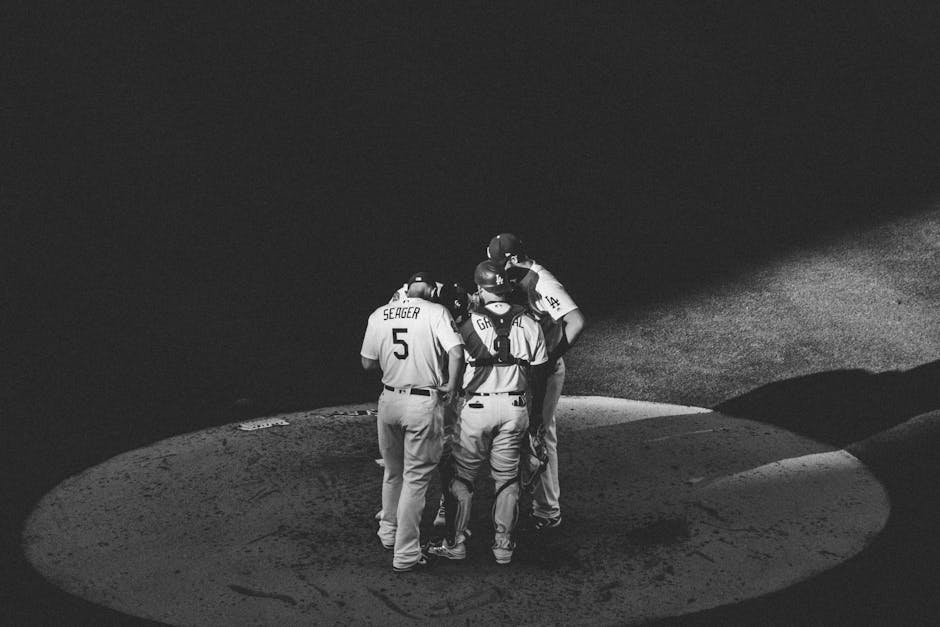Buck O’Neil’s Legacy: Breaking Barriers and Paving the Way for Black Coaches in Major League Baseball
Buck O’Neil’s Legacy: Breaking Barriers and Paving the Way for Black Coaches in Major League Baseball
Major League Baseball (MLB) has a long and complex history, one marked by both remarkable achievements and significant shortcomings. For decades, the game was marred by systemic racism, which permeated every level, from the playing field to the dugout. While the story of Jackie Robinson breaking the color barrier in 1947 is well-known, the journey towards true equality and representation extended far beyond a single player. A crucial, yet often overlooked, aspect of this journey is the struggle for Black coaches to gain a foothold in the major leagues. This article delves into the groundbreaking achievements and lasting impact of Buck O’Neil, widely considered the first Black manager in MLB history, and explores the persistent challenges and eventual progress made in diversifying coaching staffs.
The Long Road to the Dugout: Pre-O’Neil Era
Before Buck O’Neil’s pivotal role, the landscape for Black coaches in professional baseball was starkly barren. The color line, which excluded Black players from MLB until 1947, naturally extended to coaching positions. Even after Robinson’s historic debut, prejudice remained deeply entrenched, making it exceedingly difficult for Black individuals to attain managerial or coaching roles. The few Black coaches who emerged in the minor leagues often faced significant obstacles, including limited opportunities for advancement and overt discrimination from team owners and front office personnel.
The lack of representation not only perpetuated inequality but also deprived the sport of immense talent and experience. Many talented Black players possessed the leadership qualities and baseball acumen necessary for successful coaching, yet their potential remained untapped due to prevailing racial biases. This period represents a significant gap in baseball history, a time when qualified candidates were systematically excluded based solely on their race.
Buck O’Neil: A Pioneer in Every Sense
John ‘Buck’ O’Neil stands as a monumental figure in baseball history, not just for his exceptional playing career, but also for his tireless efforts to promote the game and pave the way for future generations of Black players and coaches. While his managerial debut in the Negro Leagues is often cited, the official recognition as the first Black manager in MLB remains complex and debatable, given the ambiguous nature of the Kansas City Monarchs’ affiliation with the MLB.
O’Neil’s impact on baseball transcends mere statistics. His charisma, leadership skills, and unwavering commitment to the game made him a beloved figure throughout the baseball world. His time managing the Kansas City Monarchs in the Negro Leagues was marked by significant success, developing future stars and fostering a team spirit that resonated far beyond the field. His influence on players like Jackie Robinson is well documented, showcasing his significant contribution to integrating the MLB.

O’Neil’s Impact Beyond the Diamond
O’Neil’s influence extended far beyond his on-field achievements. He became a prominent advocate for baseball history and a staunch supporter of the Negro Leagues, dedicating his later years to preserving its legacy and ensuring its rightful place in the narrative of American baseball. His tireless work in documenting the Negro Leagues’ history, both through storytelling and active participation in historical preservation efforts, has been invaluable in ensuring these stories are not forgotten.
His contributions have cemented his place as not just a pioneer for Black coaches but as an important figure for all of baseball. He served as a mentor and inspiration for countless individuals, both Black and white, reminding everyone of the enduring power of perseverance and the importance of fighting for equality and justice.
The Slow but Steady Progress
Following O’Neil’s pioneering efforts, the road for Black coaches in MLB remained challenging but showed incremental improvement. While progress was slow, the gradual increase in Black players created a pipeline of potential coaching candidates. However, systemic biases continued to hinder advancement, with many qualified Black coaches encountering barriers to entry and facing unfair treatment. The lack of opportunities created a cycle where few Black coaches reached higher levels, making the existing prejudices self-perpetuating.
The Modern Era and the Ongoing Struggle
In recent decades, MLB has made strides in promoting diversity, although the road towards genuine equality remains long and complex. While there have been Black managers and coaches at the highest levels, their representation still falls short of proportional representation within the player pool. The persistent lack of diversity in management and coaching roles points to deeper issues within the organizational structures of MLB teams.

These persistent challenges highlight the need for ongoing efforts to address systemic biases, foster mentorship programs, and create pathways for Black coaches to gain experience and advancement opportunities. Furthermore, creating a more inclusive culture within MLB organizations is crucial to attracting and retaining qualified Black coaches.
Current Initiatives and Future Directions
MLB has introduced several initiatives aimed at improving diversity and inclusion, including mentorship programs and initiatives to increase opportunities for minority coaches. However, these programs require continuous evaluation and adaptation to address the evolving challenges and complexities of diversity in sports. Transparency and accountability are crucial to ensuring that these efforts translate into tangible results.
The ultimate goal is to create an environment where coaching opportunities are allocated based solely on merit and qualifications, free from the lingering effects of past biases and discrimination. This requires a concerted effort from all stakeholders, including team owners, front office personnel, coaches, and players.
The Lasting Legacy of Buck O’Neil
Buck O’Neil’s legacy extends far beyond his own career. He represents a symbol of resilience, perseverance, and the unwavering pursuit of equality. His impact on baseball, and American society as a whole, is immeasurable. While he may not have officially managed in MLB, his influence on the game, his commitment to preserving its history, and his unwavering belief in the potential of Black players and coaches serve as an inspiration to all who strive for a more just and equitable world. His story reminds us of the long journey towards true equality and the importance of celebrating the pioneers who paved the way.

- Continued dedication to diversity initiatives: MLB and individual teams must remain committed to their diversity programs, constantly evaluating their effectiveness and adapting them to address emerging challenges.
- Mentorship and networking opportunities: Establishing strong mentorship programs and fostering networks among minority coaches can help create pathways to success and provide crucial support.
- Transparent hiring practices: Promoting transparency in hiring processes helps ensure fairness and accountability, fostering a more equitable environment.
- Investing in youth development: Support for youth baseball programs in underrepresented communities can help cultivate future generations of Black players and coaches.
The story of Buck O’Neil and the journey of Black coaches in MLB serves as a powerful reminder of the importance of perseverance, the ongoing struggle for equality, and the enduring legacy of those who fought to break down barriers and build a more inclusive future for the sport.






